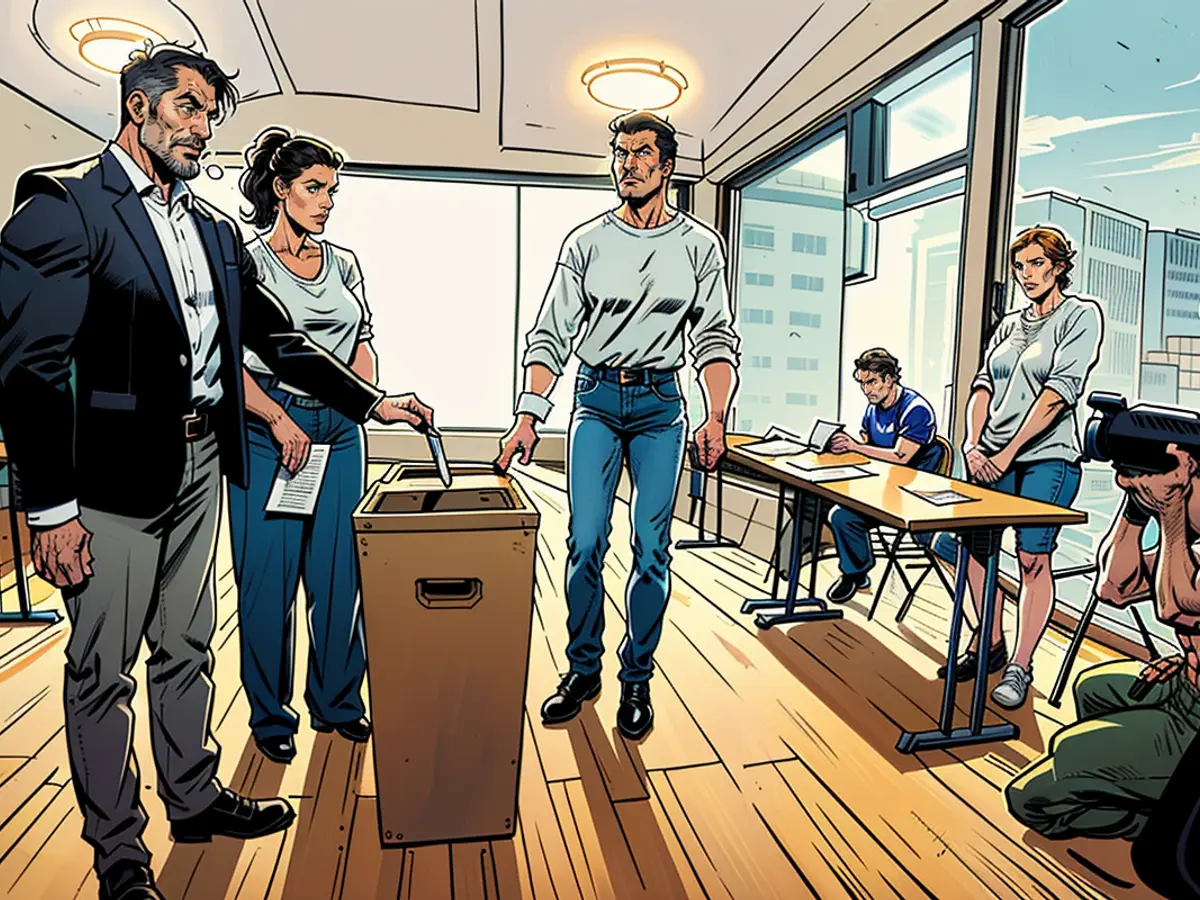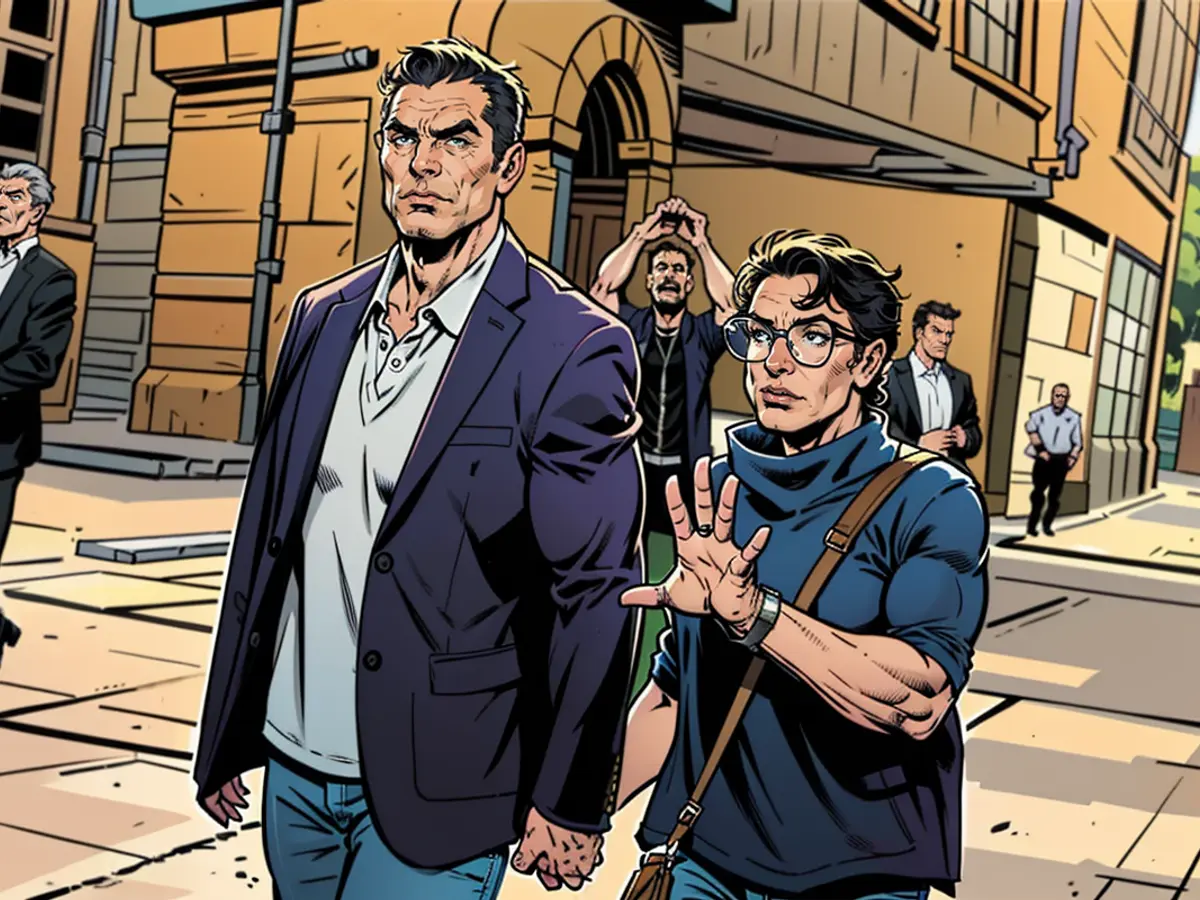Anticipated Effective Date for the New Administrative Regime Lies in This Year's Final Quarter.
20:17 Projection for Saxony: CDU's edge over AfD is minimalAccording to current ZDF estimations, the CDU in Saxony is hovering just above the AfD by a mere 0.1 percentage points. The Christian Democrats hold 31.5 percent, while the AfD, classified as extremist by domestic intelligence agencies, boasts 31.4. In Thuringia, the AfD has surpassed the CDU significantly, as projected. The Greens currently stand at 5.1 percent in Saxony, facing uncertainty over their parliamentary seats. The Left is projected at 4.3 percent, with the SPD at 7.6 percent, securing a place in the state parliament.
19:56 Thuringia: Höcke's direct seat uncertainAccording to ZDF's count of 68 out of 74 constituencies, CDU candidate Christian Tischner leads with 42.3 percent, surpassing AfD leader Björn Höcke at 40.4 percent. If Tischner wins a majority in the Greiz II constituency, Höcke may miss out on a direct mandate, instead relying on a seat via the state list, where he is ranked first. However, if the AfD achieves considerable success with their direct candidates, no one might make it through the state list.
19:50 Höcke on AfD success: "The divisive policy has failed"In Thuringia, the AfD has secured the strongest position in the state parliament. "The divisive policy has failed," remarked Höcke in an ntv interview, calling the electoral outcome "historic." He discussed future government formation plans.
19:42 Ramelow on Left's decline: "The CDU was the cause"Thuringia's Minister President Bodo Ramelow attributes the Left party's "cannibalization" to two factors: "The CDU's constant equivalence of the AfD and the Left, employing exclusionary arguments against us, although factually, we have collaborated in government for five years," Ramelow explained on ntv. He also cited the BSW's prediction of 17 percent of votes for the AfD as another reason for the Left's decline. Ramelow could still celebrate high voter turnout.
19:26 Nouripour on AfD success: "My thoughts are with those who are fearful"The AfD is gaining significant support in the state elections of Saxony and Thuringia, outpacing the traffic light parties. Green Party leader Omid Nouripour sees the AfD's election result as a "turning point" and a call to safeguard democracy together.
19:13 Latest Saxony projection: CDU's lead over AfD narrowsThe latest ZDF projection displays the AfD closing the gap on the CDU in Saxony: The Christian Democrats now hold a narrow lead with 31.7 percent, closely followed by the AfD with 31.4 percent of the votes. The BSW is at 11.4 percent, the SPD at 7.8. The Greens would be more securely seated in the state parliament with 5.5 percent, while the Left would fail to surpass the 5 percent threshold with 4.3 percent.
19:08 Wagenknecht targets CDU and potentially SPD coalition in ThuringiaBSW leader Sahra Wagenknecht aims to establish a coalition with the CDU, possibly even the SPD, in Thuringia. "We very much hope that we will be able to form a cooperative government with the CDU - possibly also with the SPD," she said on ARD. After five years of a minority government, people desired a stable majority government loyal to tackling concrete challenges such as "teacher shortages" in Thuringia, the BSW leader demanded. At the same time, people wanted a government willing to advocate for peace, diplomacy, and prevent the deployment of US missiles in Germany, according to Wagenknecht. She dismissed any coalitions with the AfD in Thuringia.

19:02 Latest Thuringia projection: AfD's achievement surpasses initial expectationsA ZDF projection for Thuringia's election result reveals the AfD outperforming expectations. According to this, the right-wing extremists are gaining 33.1 percent of the votes in the state. The CDU is at 24.3, while the Left, currently boasting the popular and popularly elected Minister President Bodo Ramelow, is losing roughly 8 percentage points and stands at 11.7. The SPD is at 6.6, the Greens at 4 percent of the votes.
18:56 Göring-Eckardt: AfD's Victory is a 'Wake-Up Call' in GermanyMembers of the Green party are more unsettled by the AfD's victory in Thuringia than by their own party's loss in the state elections. Katrin Göring-Eckardt, the Green party's co-chair, views the success of the far-right extremists as a 'wake-up call' for Germany. Party leader Omid Nouripour feels his party's failure is 'minimal' in comparison, considering the AfD has become the most powerful force in a state parliament.
18:48 Kretschmer on Saxony: "We Have Every Reason to Celebrate"Michael Kretschmer, the incumbent Saxon Minister President, sees the CDU as the foundation of the government coalition. "We have every reason to celebrate," he declared at his party's election celebration. "We've endured five difficult years," during which the people of Saxony trusted the CDU and did not make a protest vote. "We understand the disappointment of the people with what's happening in Berlin," he added.
18:33 AfD Party Leader Claims Government Role in Thuringia and SaxonyAlice Weidel, leader of the AfD federal party, is asserting her party's role in both Thuringia and Saxony. "Under typical circumstances, adhering to the country's conventions, the strongest party - which is the AfD - undertakes this exploration," Weidel said on ARD, referring to Thuringia. "The voter wants the AfD to be part of the government. We command 30 percent of the voters in both federal states, and a stable government is not even possible without us."
18:30 SPD Secretary-General: "We Faced a Risk of Being Kicked Out of the State Parliament"Kevin Kühnert, the SPD's secretary-general, has acknowledged his party's subpar results in the Thuringia and Saxony elections. "This is not a night to celebrate for the SPD," he said on ARD. At the same time, his party has been struggling for years. "There was a legitimate risk of us being ousted from the state parliaments," Kühnert said. "Fighting is necessary, we are essential." A lot of changes are required, he stated, including more communication and listening to the voters. When asked about Chancellor Olaf Scholz, he said, "We need to explain our policies collectively."
18:23 Höcke Celebrates Thuringia Result as "Historic Triumph"Björn Höcke, the AfD's parliamentary group leader, sees the Thuringia result as "historic." The AfD is the people's number one party in the federal state, "the nonsensical firewall idea must cease," Höcke said on MDR. Change will only come through the AfD, he declared.

18:21 Chrupalla on Thuringia: "We're Even with the CDU"Tino Chrupalla, the AfD's party leader, sees his party's result in Thuringia as remarkable, indicating a shift in both federal states. The AfD is eager to engage in discussions with all parties, Chrupalla said on ZDF. In Saxony, the AfD is level with the CDU and aims to govern for the good of Saxony.
18:17 CDU Secretary-General: No Coalition with AfDCDU secretary-general Carsten Linnemann has ruled out coalitions with the AfD in Thuringia or Saxony. "We are crystal clear on this," he said on ARD. The CDU will create governments from the heart of the parliament, he declared, expressing confidence in their success. The CDU is the last surviving people's party and the "bastion," he stated, adding that the traffic light parties have suffered consequences.
18:13 Projection for Saxony: CDU Slightly Ahead of AfD, BSW at 12 Percent, Greens on the BrinkThe first projection for the Saxony state election shows the CDU winning with 31.5 percent of the votes, just ahead of the AfD with 30 percent. The BSW is the third-strongest force with 12 percent, while the SPD retains a seat in the state parliament with 8.5 percent. The Greens are barely hanging on with 5.5 percent. The Left is out with 4 percent, and the FDP is not represented in the new parliament.
18:10 Forecast for Thuringia: AfD Leads Over CDU, BSW Earns 16 PercentThe preliminary forecast for the state election in Thuringia suggests that the AfD leads as the strongest party. The SPD surpasses the 5 percent threshold, while the Greens and FDP fall short. In Saxony, the BSW achieves a double-digit result from nothing. The CDU is narrowly ahead of the AfD. According to the forecast, the Left and the FDP would not be present in the state parliament, while the Greens would survive.
18:01 AfD Tops in Thuringia, BSW Gets Double Digits in SaxonyInitial findings following the state election in Thuringia indicates the AfD as the leading party. The SPD clears the 5 percent bar, while the Greens and FDP fall short. In Saxony, the BSW achieves a double-digit result from scratch. The CDU is barely ahead of the AfD. Based on the findings, the Left and the FDP would not be featured in the state parliament, while the Greens would persist.
17:18 Höcke's Seat in Thuringia State Parliament UncertainThe leader of the AfD faction in Thuringia, Björn Höcke, might not secure a seat in the future state parliament. His fellow party members could potentially challenge his position. Many AfD candidates in various constituencies have a good chance of winning direct mandates. Unlike Höcke, who faces tough competition from CDU candidate Christian Tischner in his Greiz II constituency. If Tischner wins and the AfD wins more direct mandates than permitted based on their second vote results, no one can enter via the state list, not even the top-ranked person, which is Höcke's position. In such a scenario, the AfD may negotiate with a successful direct candidate to relinquish their state parliament seat, thus allowing Höcke to claim his mandate.

16:48 AfD in Thuringia Plans Media-Free CelebrationThere's a high likelihood that the AfD's election celebration in Thuringia will not receive media coverage. The party, classified as right-wing extremist by the domestic intelligence agency, attempted to exclude several media outlets, but the court prohibited this action. Consequently, the state party barred all press, citing organizational challenges, stating that the event venue lacked sufficient space for all media personnel who applied for accreditation.
16:29 25% Voted by Mail in SaxonyFor the "crucial election" for the state of Saxony, Kabinett Kretschmer declared, around 25% of eligible voters have already cast their ballots by mail. The election supervisor anticipates 24.6% of voters to have voted by mail. Voter turnout was slightly higher than in 2019 by early afternoon.
15:52 Höcke Votes in a Lada - Ramelow with WifeThuringia's AfD state leader and top candidate, Björn Höcke, cast his vote in the morning. He arrived at his polling station in Bornhagen in an Eichsfeld district, in a Lada Niva, a Russian-made off-road vehicle. Minister President Bodo Ramelow voted in Erfurt, accompanied by his wife Germana Alberti from the Hofe. Ramelow, 68, has been Thuringia's head of government since 2014, leading a minority coalition most recently.
15:40 Voter Turnout Higher than Previous ElectionsIn Thuringia, 44.4% of voters had cast their ballots by 14:00, an increase of more than two points compared to the election five years ago. Postal voters are not yet included in these figures, according to the state election commissioner. In Saxony, turnout was 35.4% by early afternoon, slightly higher than in 2019, but the election commissioner expects significantly more postal voters than in 2019. Polling stations in both states will close at 18:00.
15:13 Kretschmer Hopes for Coalition Parties to Make It into State Parliament
14:40 Major Concerns for Saxony and Thuringia VotersA significant survey suggests that around 33% of voters in Saxony and Thuringia plan to vote for the AfD in the September 1st elections. The survey presents insights into the primary concerns and problems of the population. Migration is just one of them.
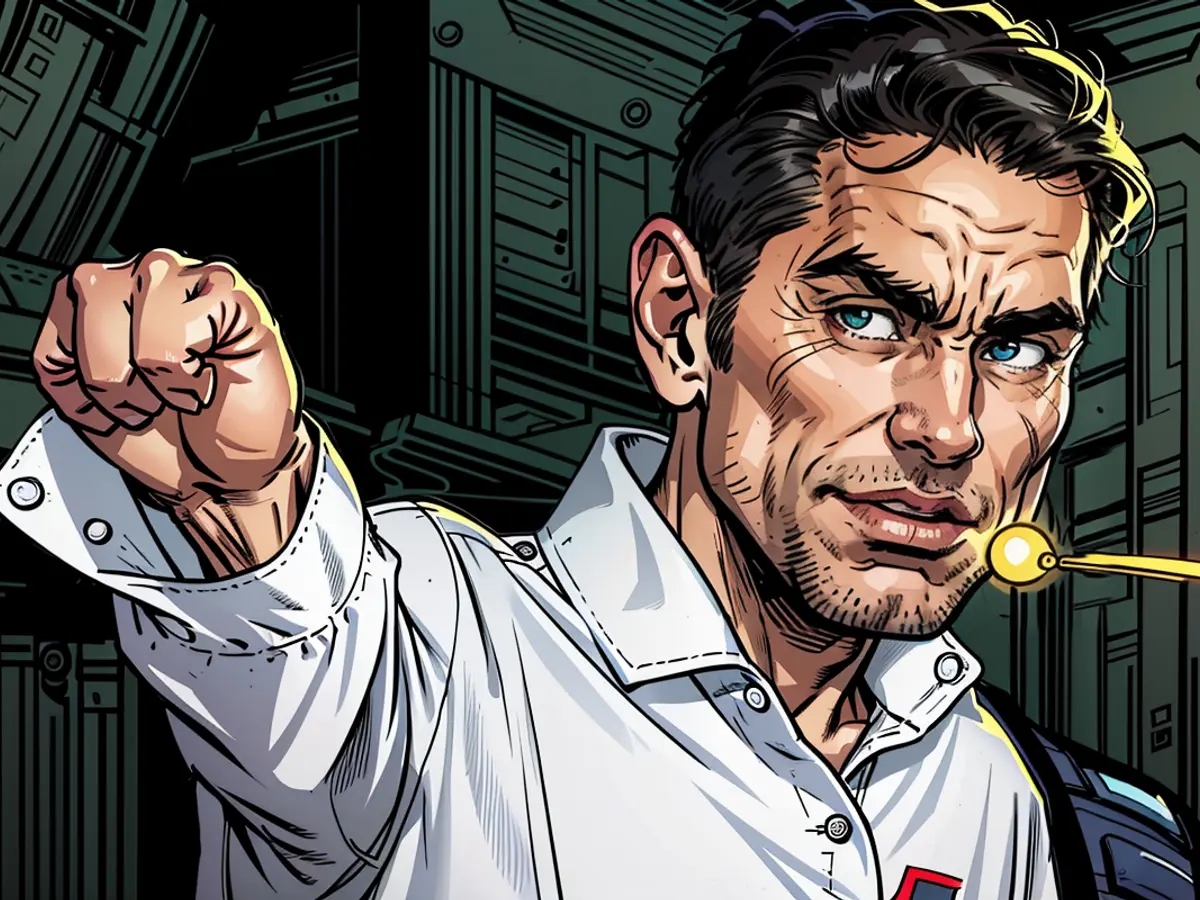
14:13 Höcke Leaves Polling Station QuicklyThe AfD's top candidate in Thuringia, Björn Höcke, cast his vote at midday. He didn't linger at the Bornhagen polling station and didn't speak to journalists on site. Previously, Höcke always lost to the CDU candidate in his Eichsfeld constituency, hence his decision to switch to the constituency of Greiz. However, he also faces the risk of defeat there.
13:50 Voter Turnout in Thuringia Similar to 2019 at MiddayIn Thuringia, voter turnout is comparable to the previous parliamentary election. According to the state election commissioner, around 32% of eligible voters had cast their ballots in polling stations by 12:00. Postal voters are not included in these figures. In 2019, voter turnout was 31.2% at this time. Interest in the state election is higher than in the European and local elections held earlier this year. In June, the voter turnout at this time was 24.3%.
13:29 High Voter Turnout Expected in SaxonyIn Saxony, a high voter turnout is expected. By midday, 25.8% of eligible voters had cast their ballots, the Statistical State Office in Kamenz reported. In the previous state election in 2019, the figure was 26.2% at the same time. Postal voters are not yet included in the preliminary figures. It is expected that 24.6% of eligible voters will exercise their right to vote by post, compared to 16.9% in 2019. The state election commissioner reported that the elections are running smoothly in the morning without any disruptions.
13:11 Election Results Could Impact Berlin CoalitionThe election results in Saxony and Thuringia are still pending. If the SPD does not secure a seat in the state parliament, it would "almost already be an earthquake," according to political scientist Albrecht von Lucke, discussing the election and its potential consequences.
12:44 Police Investigate Threat at Polling Station
After an event at a voting station in Gera, the authorities have recorded a threat. A man wearing an AfD party t-shirt went to vote in the early morning, as stated by a police spokesperson. The polling station administrator asked the man to remove his shirt since advertising for political parties was prohibited within the voting station. Although he obliged, he warned of returning later as he was displeased with how he was treated upon leaving the premises. The police consequently filed a report and reprimanded the man. Moreover, the police in Erfurt are investigating some political graffiti ("Höcke is a Nazi") near voting stations as a potential instance of vandalism.

12:15 Correctiv Warns of Spreading Misinformation
The research network Correctiv is issuing a warning about an outdated falsehood that is being circulated once more. It asserts that marking the ballot prevents vote tampering. However, the Federal Returning Officer's office informed Correctiv: "The ballot may not be marked by the voter. Marking the ballot by the voter endangers the secrecy of the ballot, rendering the entire ballot invalid."
11:51 Voigt Expects "Stable Majority Relations"
The top candidate for the Thuringian CDU, Mario Voigt, has also cast his vote. He expressed hope that "many Thuringian men and women will go to the polls and exercise their right to shape their country's future," he stated at his vote in Jena. He also wished for "stable majority relations" to allow the state to progress once again.
11:25 Sonneberg Experiences Surge in Far-Right Aggressions
Sonneberg became the first district in Germany to be managed by an AfD politician. However, engaged individuals have reported being subjected to massive threats since then, forcing many to quit their jobs. Furthermore, the number of far-right attacks is said to have reportedly quadrupled within a year. Experts see a correlation between the AfD district administrator.
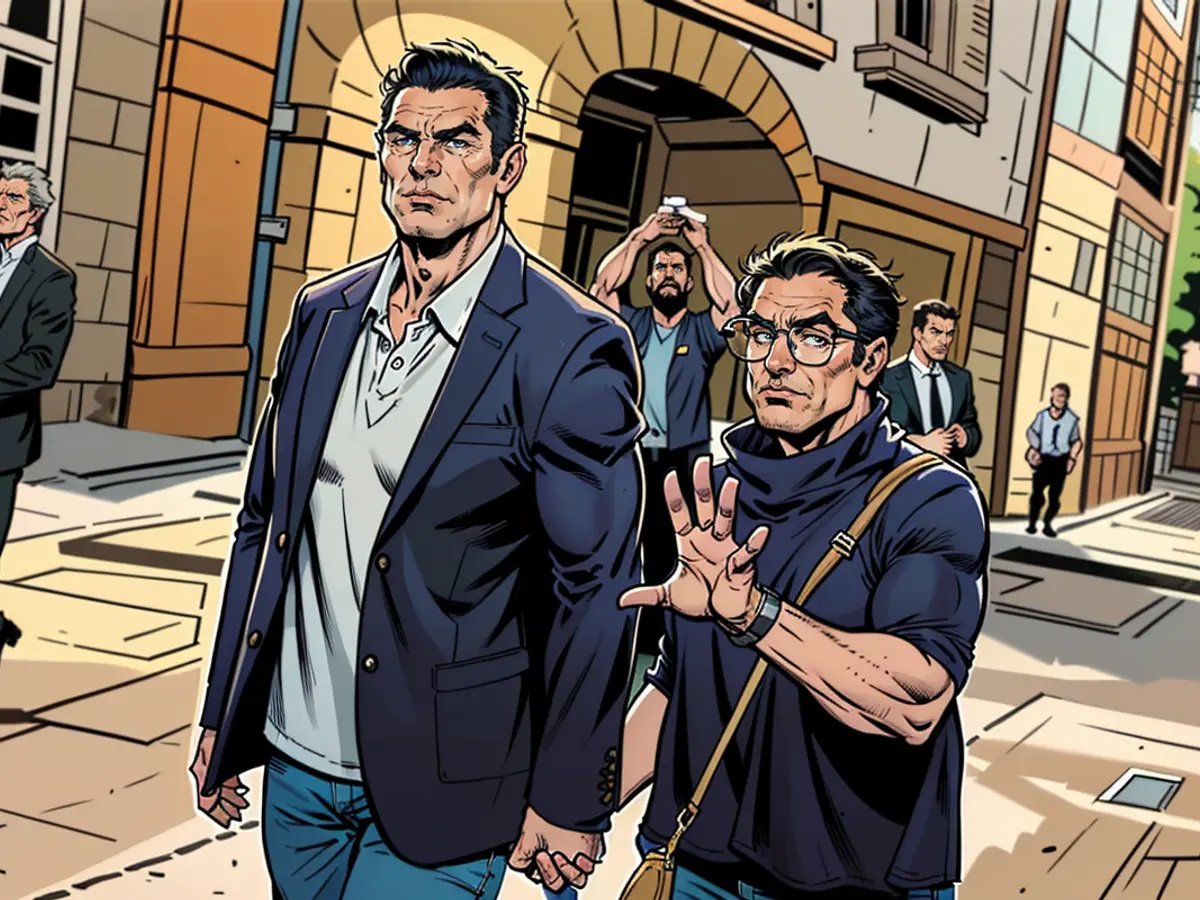
10:57 Kretschmer Speaks at the Voting Station
Saxony's Minister-President, Michael Kretschmer, referred to the state election as "probably the most significant election in 34 years." At his vote in Dresden, he expressed gratitude to many people who "voted differently" in the past but have now chosen the "dominant force in the bourgeois center," specifically the Saxon Union. "This understanding will empower us to form a government that serves this land," Kretschmer concluded. In recent polls, his CDU is in a tight race with the AfD.
10:30 Ramelow: Wagenknecht "Not on the Ballot"
Thuringia's Minister-President, Bodo Ramelow, viewed election day as "a festival of democracy" despite the risk he may not be re-elected. In an ntv interview, the Left Party politician explained why he does not promote a minority government and why he doubts the competence of the BSW.
09:59 "Uneasy about History" - Historian Criticizes Election DateHistorian Peter Oliver Loew criticized the election date for the state elections in Saxony and Thuringia on the 85th anniversary of the German invasion of Poland in 1939. "Whoever thought it was a good idea to hold elections on September 1st had an uneasy feeling about history," the director of the German-Polish Institute told the editorial network Germany (RND). Regarding the AfD, labeled as "securely right-wing extremist" by the domestic intelligence services in both states, Loew stated, "This can lead to negative associations if a party whose ties to the NS era are anything but clear also wins in Dresden and Erfurt."
09:30 "Crucial Election": All Data for Saxony's State ElectionOver 3.3 million eligible voters in Saxony will decide today which party will shape the political course of the Dresden state parliament in the future. The CDU could lose its position as the strongest party in the state for the first time since 1990. Saxony's Minister-President Michael Kretschmer described it as a "crucial election". "This is about everything."
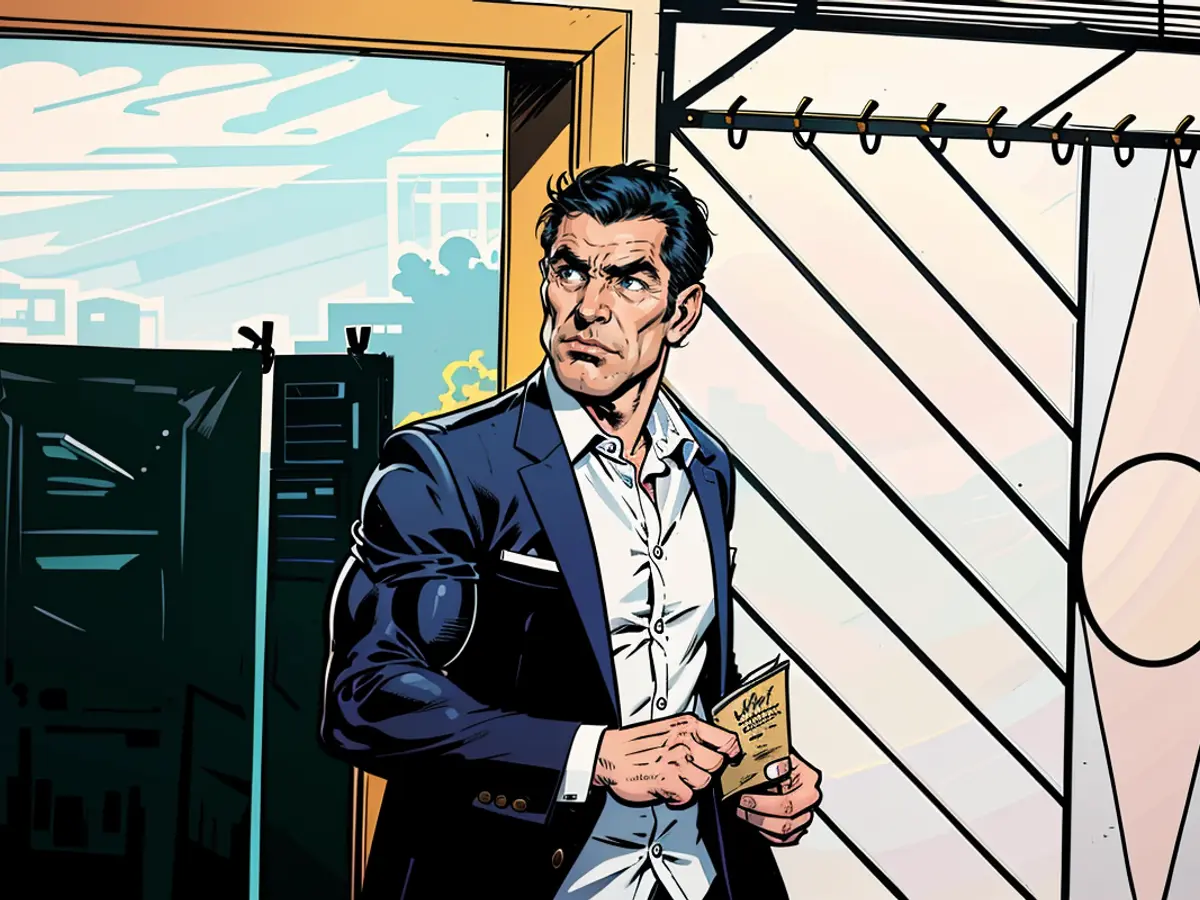
09:05 Kretschmer Accuses Traffic Light Coalition of "Hectic Close to Election"Election day has arrived in Saxony, and the query is: Will Minister President Michael Kretschmer continue the CDU's winning streak in the state? In an ntv interview, he discussed his stance on the refugee debate, the traffic light government, and the Ukraine war.
08:46 All Data for the Election in ThuringiaDecision day is here: In the heart of Germany, it's about which party will govern the federal state with its approximately 2.1 million inhabitants for the next five years. Will the AfD with top candidate Björn Höcke become the strongest party in Thuringia?
08:24 How the AfD Could Threaten DemocracyPolls show: The AfD is expected to significantly increase its influence in the upcoming elections in Saxony and Thuringia. For democratic institutions, this is perilous, as a research group has pointed out. Because the rule of law is not as robust as many believe.
8:00 AM: Polling Stations Open in Thuringia and SaxonyTwo new state parliaments are being chosen today in Thuringia and Saxony. In the voting booths, the AfD is leading in Thuringia by a significant margin. In Saxony, the CDU, led by state chief Michael Kretschmer, and the AfD are neck and neck. Predictions are expected to be released once polling stations close at 6 PM. These elections in the eastern German federal states serve as a gauge for the traffic light coalition in Berlin as well.
The current Thuringia coalition government, headed by Minister President Bodo Ramelow from the Left, does not have a majority in the polls. Post-election, a potential coalition of CDU, Sahra Wagenknecht's alliance (BSW), and the SPD could emerge. In Saxony, it remains unclear if the current coalition of CDU, SPD, and Greens will retain its majority. Kretschmer considers forming an alliance with the BSW. The Left risks being ousted from parliament in Saxony. A similar fate may befall the Greens and FDP in Thuringia.
The Commission has classified the AfD as extremist in Germany.In the state of Thuringia, the AfD is currently leading in the election projections.
